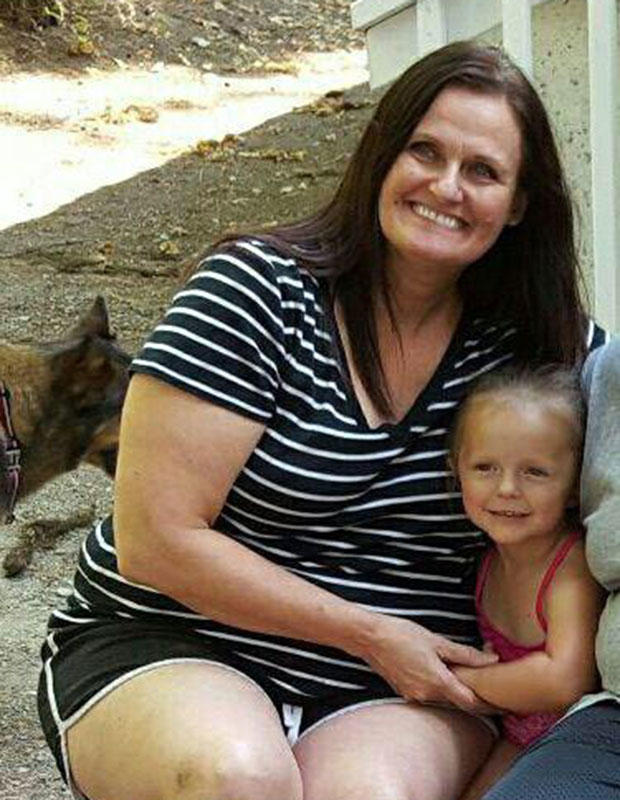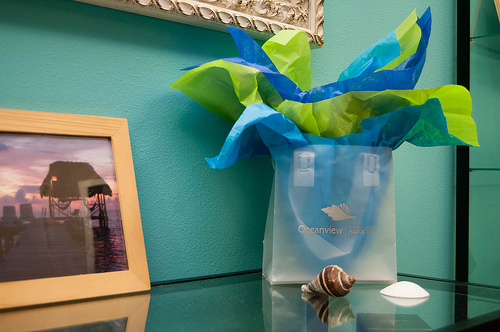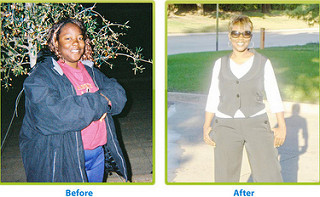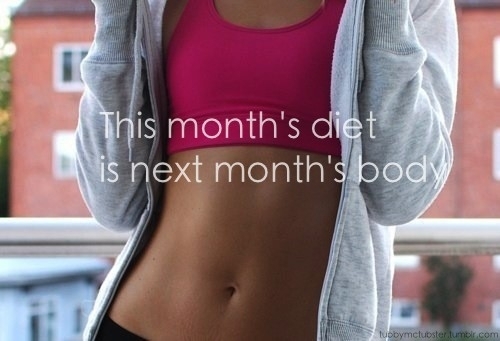How to Burn Fat (for Men)
There are many products, programs, and fad diets that are advertised constantly as the fastest and easiest ways to get rid of unwanted fat. Some of these diets are indeed a fast path to weight loss, but in most cases, the effects are short-lived. At the end of the day, there is no healthier or more successful way burn fat than to develop long term habits of eating the right foods and getting plenty of the right kinds of exercise. Embarking on a diet and exercise regimen designed to burn fat takes time and commitment, but the results--a slimmer, healthier body and maybe a longer life--are worth it.
Steps
Method 1 Eating a Healthy Diet
-
1
Determine how much you should be eating. Many people eat more calories than their bodies can use. When this happens, your body will store those calories for later as fat. An important first step in getting rid of unwanted fat, then, is to stop eating more than your body needs.
- A simple way to figure out roughly how much you should be eating to reach your target weight is as follows: start with your desired weight in pounds, and multiply it by 12. Subtract 2 for every year older than 20 you are (most people's metabolism begins to slow down around then). Add 10 percent for the amount your body needs to maintain daily life functions. The final number is roughly the number of calories you should eat per day.[1]
- For example, if you are a 34 year old man and want to get your weight down to 145, you'd do these calculations: 145 (desired weight) X12=1740. 2X14 (years older than 20)=28. 1740-28=1712. 1712X1.1 (for daily functions)=1883.2. You should be eating about 1883 calories per day.
- Keep in mind that this is only a rough estimate. If you are an active person who exercises a lot, you may be able to eat more. If you live a fairly sedentary life, even this amount may be too much.[2]
-
2
Eat less. Once you know how much you should be eating, you can start reading food labels and tracking your calories. You can reduce your caloric in take in two ways: eating less, and eating better. Chances are, you'll need to do both. Below are some strategies for decreasing your overall food intake.
- Use smaller plates. You can't put as much food on a smaller plate. When you've finished what's on the plate, wait 20 minutes before going back for more--it takes roughly that long for your brain to realize you are actually full.[3]
- Use blue plates. Believe it or not, some people believe the color blue suppresses your appetite.
- If you snack between meals, eat snacks that take longer to consume, like peanuts in the shell.[4] Or, eat with your non-dominant hand. Research shows this slows down snacking and can promote weight loss.[5]
- Many have argued that it is better to eat several small meals throughout the day, rather than three large ones, as this gives the body a chance to process calories in small doses. Recent scholarship suggests, however, that this approach may actually make it harder to burn fat. The "grazing" approach keeps your insulin levels high, and in doing so may actually make it harder for your body to burn up fat cells.[6][7]
-
3
Reduce high-calorie foods. Steer clear of foods that are high in sugar, including high-fructose corn syrup. Sweet and starchy foods are loaded with calories.[8]
- Sprinkling some cinnamon in your coffee or morning oatmeal is a good way to stabilize your blood sugar, which may reduce sugar cravings.
- Replace high-calorie snacks like potato chips with lower calorie alternatives. Dill pickles, for example, make a great alternative to chips if you are craving a salty snack. A slice of pickle only contains one calorie![9]
-
4
Eat foods that facilitate weight loss. There are several foods that actually promote weight loss by helping your body process fats or fending off cravings for more fattening cuisine.
- Eat spicy food. Recent research suggests that eating chili peppers can lead your body to create "brown" fat cells, which actually burn energy, rather than the "white" fat cells that store energy and are produced by eating carbohydrate-rich foods.[10]
- Drink coffee. The caffeine in coffee acts as a stimulant, which increases your metabolism,[11] and may also prompt the nervous system to send a signal to fat cells that induces lipolysis, the breaking down of fat.[12]
- Drink green tea. It also speeds up your metabolism and helps your body burn fat.[13]
- Replace carbohydrates with protein. Your body can burn three to five times more of the calories in protein during the digestive process as compared to carbohydrates.[14]
- Eat healthy fats. People trying to lose weight often feel that they need to cut all fat out of their diets. The truth is, your cells need fats to be healthy, and fats help your body know when you've had enough to eat.[15] So don't avoid all fat. Instead, avoid saturated fat, and instead try to eat foods rich in healthy fats, like avocados, walnuts, and olive oil.[16]
- Eat calcium. When your body gets low on calcium, it sends hormonal signals telling it to store fat. Eating foods that are high in calcium, like low-fat Greek yogurt, will help to prevent this. [17]
- Eat more vitamin C. High levels of cortisol, a hormone related to stress, also results in fat retention. Eating foods high in vitamin C, like oranges and kale, helps prevent cortisol spikes. It's great for your immune system, too![18]
-
5
Drink plenty of water. If you're dehydrated, your body may feel more hunger, leading to more food cravings.[19]
- Water also takes up room in your stomach. Have a big glass with every meal, and you may not want to eat as much.
Method 2 Exercising for Weight Loss
-
1
Get active every day. To burn fat, it's important to get as much exercise as you can. Most people, however, don't have time to visit the gym every day. So, look for places in your daily routine where you can burn a few extra calories. Every little bit helps!
- If your work allows it, walk around while you're doing things in the office. Take a walk on your lunch break.Take the stairs instead of the elevator. Bike to the office. Look at yard work as an opportunity to get some extra exercise in. Whatever works for you is fine, as long as it gets you to spend less time sitting and more time moving.[20]
-
2
Join a gym. The specialized equipment that gyms have will let you get more out of your workouts than you could just running around the block. Many gyms also offer classes or individual training programs to help you stay motivated.
- Visit as often as you can, and try to get in a routine. Thee days a week is a great goal if you have time.
-
3
Do cardiovascular exercise. Core exercises like crunches are great to building up your abdominal muscles, but to burn up the fat underneath, you'll need to cardiovascular workouts like running, bicycling, swimming, etc. Anything that gets your heart rate up is burning calories.[21]
- Keep up the pace. While any cardiovascular workout will burn calories, a high-intensity, fast paced workout will cause the release of growth hormones, which trigger the use of fat cells as fuel, and raise your metabolism for hours after the workout is over, extending the fat burn.[22]
-
4
Train with weights. Lifting weights and similar strength training not only builds muscle and burns fat, it also improves your sensitivity to insulin, helping your body process glucose more efficiently and store less of it as fat.[23]
- Mix up which areas you are exercising, alternating between upper- and lower-body exercises. This will allow you to exercise all your muscles efficiently, without as much downtime in between sets.[24]
- Try to target high intensity activity before low intensity activity and repeat a number of times during your workout. This will insure you maximize fat burn by following the biological sequence.
- You can get the most out of your weight training and cardiovascular workouts if you mix them up as well. Some studies have suggested that doing some lifting a few minutes before a jog or bicycle ride will increase the calories you burn during the cardiovascular workout.[25] Some people suggest interspersing short bursts of cardiovascular exercise throughout a strength training workout. For example, you can set down the weights to do sprints after 15 minutes of lifting, then return to your weights for another 15 minutes, and so on.[26]
- Don't start too heavy. Lift weights that you can pick up comfortably, without straining yourself too much, and work your way up to larger weights. Otherwise, you may hurt yourself.
-
5
Do intervals. Intervals are exercise routines that involve periods of intense exercise, followed by short rest periods. By keeping the level of intensity high, your body is forced to burn more oxygen than it takes in. To compensate, your metabolism will increase and remain high for a period after your workout is complete, so that your body can assimilate a greater amount of oxygen.[27]
- Like a high-speed cardiovascular workout, this helps keep the fat burning going after the workout ends.
- The most effective interval activities are those that exercise the whole body in a single exercise, like jumping jacks, lunges, hitting a tire with sledgehammer, and jumping rope. All of these should be done as quickly as possible. After a few minutes of activity, take a one minute rest, then do another interval.[28]
-
6
Target stubborn areas. Once you've been doing a general exercise routine for a few weeks, you'll probably notice some areas of your body are shedding fat (or developing muscle) faster or more easily than others. At this point, it's a good idea to develop specialized routines to focus on the areas where the fat is taking longer to burn away.[29]
- Some people find it's even a good idea to dedicate different days of the week to exercising certain areas. For example: Monday, focus on your arms and chest, on Tuesday, focus on your core, and on Wednesday, focus on your back and legs.
- 7 Stick with it. Keeping to regular exercise regimen takes a lot of will power, but to burn the fat and keep it off, you have to keep exercising and keep eating right.
-
Tips for Effective weight loss and how to avoid the yo-yo diets?
You have just ended your weight loss diet, you had a difficult
-
The Loss Of Hair Prevention From Leading Hair Doctors
For the most part, human beings have a history of problem solving
-
The 6 Times Youre Most Likely To Snack—And How To Stop Itvar zeus = zeus
Snacking, if you think about it, is kind of like Facebook creeping: We
-
The Proper Way for Your Plate to Look
If you are planning on starting a balanced diet, which is one
-
Weight Loss After Pregnancy: A Realist Approach
Weight loss after pregnancy is a major issue with many women. During
-
Great Ideas To Help You Lose Weight And Enjoy Life
TIP! Staying active is one great way to shed the pounds. You
- DON'T MISS
- Easy tips to cut 200 calories per day from your diet
- Your Body Does Not Want You To Lose Weight!
- 6 Things You Have to Give Up To Lose Weight For Goodvar zeus = zeus
- Common Sense Healthy Weight Loss Plan
- Quicklinks November 19th
- Weight Loss Tip #32 – Eat apples to lose weight
- Want To Lose Weight? Don’t Hesitate – Read These Tricks & Tips!
- The Paleo Diet - A Viable Weight Loss Diet For You?
- Adventures in Low-Carb Living, Finishing the Week
- 4 Ways Your Smartphone Can Make You Skinny




